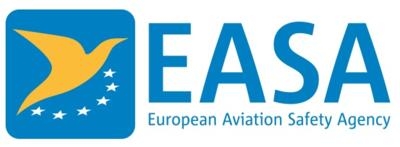Tue, May 29, 2018
Participants Include Airlines, Crew Members And Aviation Authorities
Flight time limitation (FTL) rules and fatigue risk management (FRM) were the topics for discussion as 180 participants from the European aviation industry participated in a workshop organized by EASA.

This workshop is the third FTL workshop organized by EASA to gain valuable feedback and insights from airlines on the implementation of the rules and into how authorities oversee Europe’s airlines’ FTL schemes.
"In the past, flight time rules have often created tension, between employers and employees and between airlines and authorities. Europe’s flight time rules have now been in force for more than 2 years," said EASA Flight Standards Director, Mr Jesper Rasmussen in his remarks opening the workshop. "This is the right time to take stock and evaluate them. Europe’s flight time rules are science and performance based and call for a change of mentality. Those rules also call for closer and enhanced safety partnership between regulators, airlines and their crews. EASA’s role is to put safety first and to support our industry in managing fatigue responsibly."
The workshop touched upon those areas where EASA has received a number of questions from stakeholders.
- How can we ensure safe and efficient crew planning?
- What is an individual FTL scheme and how does it work in practice?
- What is the process involved in approving a deviation from the FTL scheme?
- What is a fatigue risk management scheme and best practice examples on shared responsibility of both aircrew and airlines and fatigue training?
The workshop allowed participants to learn from each other, to provide information on good practices and tools, and to share experience on implementation of smart fatigue solutions.
Looking into the future, EASA will continue to support implementation of FTL rules and has established a dedicated FTL/FRM expert group of national authority inspectors that will further share good practices and promote a common understanding of the European FTL/FRM framework. In addition, EASA will continue to focus on FTL related issues during its standardisation activities of EU Member States.
(Source: EASA news release)
More News
Aero Linx: Model Aeronautical Association of Australia MAAA clubs are about fun flying, camaraderie and community. For over 75 years, the MAAA has been Australia’s largest fl>[...]
Touchdown Zone Lighting Two rows of transverse light bars located symmetrically about the runway centerline normally at 100 foot intervals. The basic system extends 3,000 feet alon>[...]
“Discovery and innovation are central to our mission at Virgin Galactic. We’re excited to build on our successful record of facilitating scientific experiments in subor>[...]
How To Get A Story On Aero-TV News/Feature Programming How do I submit a story idea or lead to Aero-TV? If you would like to submit a story idea or lead, please contact Jim Campbel>[...]
Student Pilot Reported That During Rotation, “All Of A Sudden The Back Of The Plane Kicked To The Right..." Analysis: The student pilot reported that during rotation, “>[...]
 ANN's Daily Aero-Linx (05.02.24)
ANN's Daily Aero-Linx (05.02.24) ANN's Daily Aero-Term (05.02.24): Touchdown Zone Lighting
ANN's Daily Aero-Term (05.02.24): Touchdown Zone Lighting Aero-News: Quote of the Day (05.02.24)
Aero-News: Quote of the Day (05.02.24) ANN FAQ: Contributing To Aero-TV
ANN FAQ: Contributing To Aero-TV NTSB Final Report: Cirrus Design Corp SR20
NTSB Final Report: Cirrus Design Corp SR20



